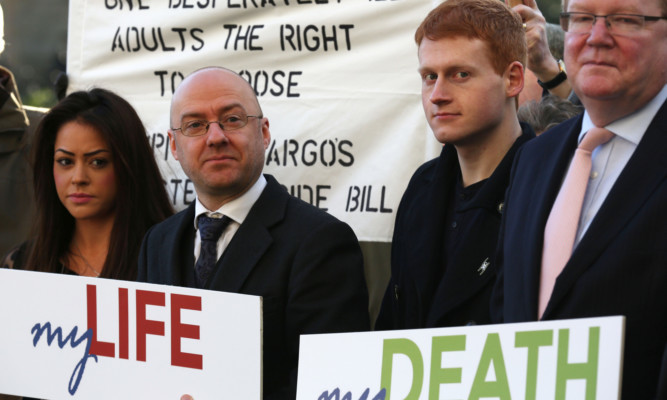Legislation to allow assisted suicide is fit for purpose but changes could be made to strengthen it, the politician championing the cause has told a Holyrood committee.
Green MSP Patrick Harvie said it is the Scottish Parliament’s responsibility to make a decision on the issue in order to clarify the law.
He said that he did not intend to make any “radical changes” to the Assisted Suicide Bill but is willing to consider amendments suggested by MSPs that do not undermine the main principles.
Mr Harvie appeared at the Health Committee in its final evidence session on the controversial legislation.
The Bill would allow those aged 16 and over with terminal or life-shortening illnesses to obtain help in ending their suffering by making a formal request to their GP to end their life.
Requests must be signed off by two doctors before one of them supplies a licensed facilitator with a prescription to enable assisted suicide to take place.
Opponents of the Bill have argued that it could result in vulnerable people being coerced into taking their own life or create a perception that their life is not valued as much as others.
Legal and medical experts have also expressed concerns about the legislation and how it would work in practice.
MSP Richard Lyle asked Mr Harvie how many amendments the Bill would require to address the “flaws and concerns” identified.
Mr Harvie said issues such as reporting procedures, the final 14-day limit and eligibility could be looked at.
But he added: “I would argue that the Bill is fit for purpose.
“I don’t think there have been many major pieces of legislation that the Scottish Parliament has passed that haven’t seen some amendment.”
On the notion that a terminally-ill person’s life could be viewed as less valued, Mr Harvie said: “Nothing could be further from the truth.
“This Bill takes as its…first principle…that because all of our lives are valued we have the right to make major decisions for ourselves in a supported and informed way.
“The principle of this Bill is to place that power in the hands of the people about whom those decisions are being made.”
He argued that the law as it currently stands does not “adequately protect people from the possibility of coercion”.
“Other options exist for the committee if the committee was minded to find in favour of the general principle but felt that there was some additional safeguard being required regarding the possibility of coercion,” he said.
“The committee might even feel that a criminal offence should be created in relation to trying to induce or incite someone into making a first or second request under the legislation.
“I think that in some ways would give a clearer position in terms of what was against the law than the current legislation does.”
He added: “I think it’s Parliament’s responsibility to make a decision here.”
Mr Harvie also suggested the Bill could have a positive impact on patient-doctor relationships and the cultural taboo surrounding death.
“I see this as opening up the possibility that it becomes much more normal for people who are fit and well who are registering with a GP to have a discussion about what their general attitude might be,” he said.
The Green MSP has taken forward the legislation on behalf of Margo MacDonald, who died last year after suffering with Parkinson’s disease.
It is the second attempt to legalise assisted suicide in Scotland after Ms MacDonald’s previous proposals were rejected by MSPs in 2010.
